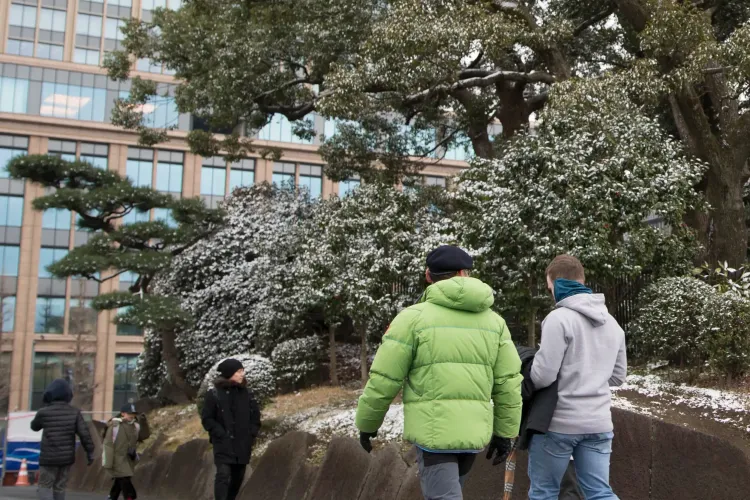Severe Snowfall Increases in Eastern Japan

Synopsis
Key Takeaways
- Heavy snowfall continues in eastern Japan.
- Significant accumulation recorded in various prefectures.
- Transportation disruptions and avalanche warnings issued.
- Record-high temperatures observed in Japan.
- 2024 marks the warmest year on record.
Tokyo, Jan 30 (NationPress) Severe snowfall is predicted to persist into the early morning hours of Friday in eastern Japan as a robust winter pressure system and cold air contribute to heightened snowfall, as stated by the Japan Meteorological Agency (JMA).
Owing to the ongoing winter pressure system, snowfall has escalated throughout northern and eastern Japan. As of 11 am local time, snowfall over the last six hours totaled 23 cm in Nishiaizu, Fukushima Prefecture, 22 cm in Oguni, Yamagata Prefecture, 17 cm in Ashibetsu, Hokkaido, and 16 cm in Nagahama, Shiga Prefecture.
Snow clouds are anticipated to drift further southward, delivering sporadic heavy snowfall to Niigata Prefecture and the Hokuriku region through early Friday, according to reports from Xinhua news agency.
Officials have cautioned about possible transportation disruptions and have advised vigilance against avalanches and other snow-related dangers.
Earlier this month, substantial snow impacted coastal areas along the Sea of Japan in northern, central, and western Japan, hindering bullet train services and necessitating the closure of certain expressways and national routes.
On January 10, snow led to the temporary halt of Yamagata Shinkansen bullet train services between Fukushima Station in the northeastern Fukushima Prefecture and Shinjo Station in another northeastern prefecture, Yamagata, affecting 12 inbound and outbound trains and approximately 1,600 passengers.
Trains on the Tokaido Shinkansen Line also operated at reduced speeds between Nagoya and Shin-Osaka stations, with delays reported on the Sanyo Shinkansen Line, as communicated by the train operators.
The JMA also disclosed that the nation’s average temperature in 2024 was recorded as the highest ever, influenced by global warming and westerly winds.
The average temperature from January through December 2024 was noted to be 1.48 degrees Celsius above the mean temperature for the 30-year period ending in 2020, marking the largest deviation since records began in 1898, surpassing the previous year’s record of 1.29 degrees Celsius.
Record-high average temperatures were documented in autumn last year after the country had already experienced its hottest summer, matching the previous record set in 2023.
By month, April, July, and October recorded unprecedented highs, according to the JMA.
Japan has exhibited a pattern of consistently high temperatures in recent years, with 2019 to 2024 ranking among the six hottest years.










